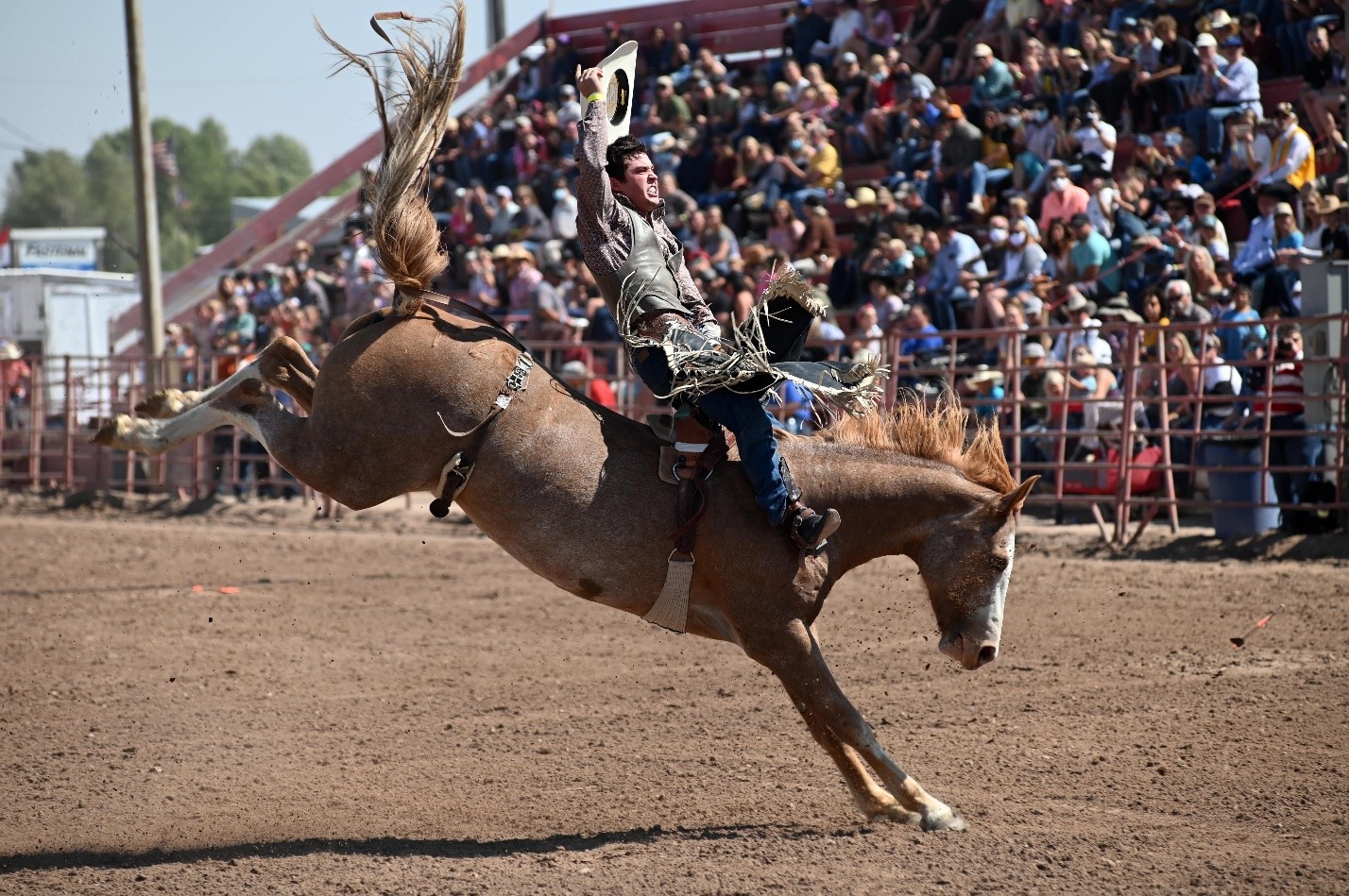Rodeo is more than an adrenaline-pumping display of skill, strength, and courage. For many rural communities across America, it represents a deeply rooted tradition that fosters community ties, preserves cultural heritage, and instills values of hard work and perseverance. Jennifer Yruegas with Pacific University College of Business, understands that from local county fairs to nationally televised championships, rodeo culture embodies the spirit of rural America, weaving together history, family, and identity.
A Historical Legacy
Rodeo culture in the United States traces its origins to the 19th century, influenced by Spanish vaqueros and Mexican ranching traditions. As cattle ranching spread across the western states, the skills needed for daily ranch work—roping, riding, and wrangling—evolved into friendly competitions among cowboys. These informal gatherings laid the groundwork for the structured rodeo events we see today.
The first official rodeo is widely recognized as having taken place in Cheyenne, Wyoming, in 1872. Over the years, rodeo expanded, gaining prominence as a uniquely American sport. By the mid-20th century, rodeos were not only showcases of cowboy skills but also celebrations of rural life, tradition, and regional pride.
Strengthening Community Bonds
Rodeo events play a pivotal role in bringing rural communities together. Whether at a small-town fairground or a large regional competition, these gatherings serve as hubs of social interaction. Neighbors, friends, and families come together to cheer on local riders, share stories, and reconnect with one another.
The economic impact of rodeo events on small towns is also significant. Local businesses often benefit from increased foot traffic during rodeo season, while the events themselves frequently serve as fundraisers for community projects, schools, and charities. Vendors, food trucks, and artisans showcase their goods, contributing to a festive atmosphere that boosts community morale. Moreover, rodeos often highlight other aspects of rural culture, such as agricultural showcases, craft fairs, and live music performances. This blend of entertainment and tradition ensures that rodeos remain deeply embedded in the fabric of rural life.
Passing Down Traditions
Rodeo is a multigenerational affair, with families often participating in the sport for decades. Parents teach their children how to ride, rope, and care for livestock, passing down not only practical skills but also the values of hard work, responsibility, and resilience. Rodeo queens, a prominent feature of many events, embody grace, horsemanship, and community pride, serving as role models for young participants.
Youth rodeo programs, such as 4-H and high school rodeo associations, provide opportunities for kids to develop their talents and compete in a structured environment.
These programs emphasize not just athleticism but also sportsmanship, leadership, and respect for animals. By preserving these traditions, rodeo ensures that rural heritage remains relevant in an ever-changing world. For many, participating in or attending a rodeo is a way to honor their ancestors’ way of life and reaffirm their connection to the land.
A Unique Cultural Identity
Rodeo culture is a cornerstone of rural identity, symbolizing self-reliance, grit, and community spirit. Events like bull riding, barrel racing, and calf roping are more than competitive sports; they are expressions of a lifestyle that values independence and a strong connection to the natural world.
The fashion and aesthetics associated with rodeo—cowboy hats, boots, leatherwork, and denim—further reinforce this cultural identity. These elements are not merely functional; they are symbols of pride and tradition, proudly worn by participants and spectators alike.
Music, too, plays a vital role in rodeo culture. Country and western songs often reflect themes of life on the range, family, and perseverance, creating an emotional backdrop for rodeo events. Whether it’s the national anthem at the start of a competition or live bands performing at post-rodeo dances, music enhances the sense of camaraderie and celebration.
Challenges and Resilience
Despite its rich traditions, rodeo culture faces challenges in the modern era. Urbanization, shifting economic landscapes, and changing societal attitudes toward animal welfare have prompted debates about the ethics of rodeo events. Some critics argue that certain practices are outdated or inhumane, while supporters emphasize the strict regulations and care standards that protect animals involved in the sport.
Rodeo organizations have responded by increasing transparency, educating the public, and implementing measures to ensure animal welfare. For example, the Professional Rodeo Cowboys Association (PRCA) enforces rules that prioritize the health and safety of livestock, underscoring the deep respect many participants have for the animals they work with. Despite these challenges, rodeo continues to thrive, adapting to the times while maintaining its core values. Rural communities’ commitment to preserving this cultural touchstone ensures its survival for future generations.
Rodeo culture is a powerful force that unites rural communities, preserves traditions, and celebrates a unique way of life. Its blend of history, athleticism, and community spirit creates a sense of belonging that transcends the competition arena. For those who participate in or attend rodeo events, it is more than a pastime—it is a living testament to the enduring values of rural America.
As rodeo continues to evolve, its role in shaping community and tradition remains steadfast. Whether through the roar of the crowd at a championship event or the quiet lessons taught on a family ranch, rodeo culture exemplifies the resilience, pride, and unity of rural America.
